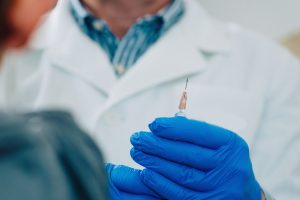
What you may not realize is that the flu shot can provide you with some surprising health benefits that have nothing to do with the dreaded influenza. Research shows that flu vaccine can lower your risk of heart disease, too.
Flu shot lowers the risk of heart disease
In the study, published in Vaccine, the researchers uncovered the molecular mechanisms behind the flu shot’s protective properties against heart attack and heart disease. Heart disease is the leading cause of death worldwide, but it can be prevented with regular exercise, not smoking, and a healthy diet. Now researchers are harboring the idea that the flu shot can help further reduce your risk of a cardiac event.
Previous studies showed that people who got their flu shot were 50 percent less likely to have a heart attack the following year, compared to people who did not receive the flu shot.
In the latest study, the researchers found that the flu shot stimulates the immune system to produce antibodies that activate certain cellular processes. These processes produce molecules that, in turn, protect the heart. The researchers are hopeful that if they succeed in harnessing these processes they could develop a shot specifically protecting against heart disease.
Researcher Dr. Veljko Veljkovic explained, “Even though the protective effect of the flu vaccine against heart disease has been known for some time, there is very little research out there looking at what causes it. Our proposed mechanism could potentially be harnessed in a vaccine against heart disease, and we plan to investigate this further.”
The researchers identified a protein known as bradykinin 2 receptor (BKB2R), which is involved in these cellular processes protecting the heart. Some antibodies produced after getting the flu shot activate this protein.
Dr. Veljkovic added, “The rate of administering flu vaccinations is disappointingly low, even in developed countries. We hope that our results will encourage more people to get vaccinated before the flu season starts.”
Even if you haven’t received your annual flu shot yet, it’s not too late to start protecting yourself from the flu – and heart disease.